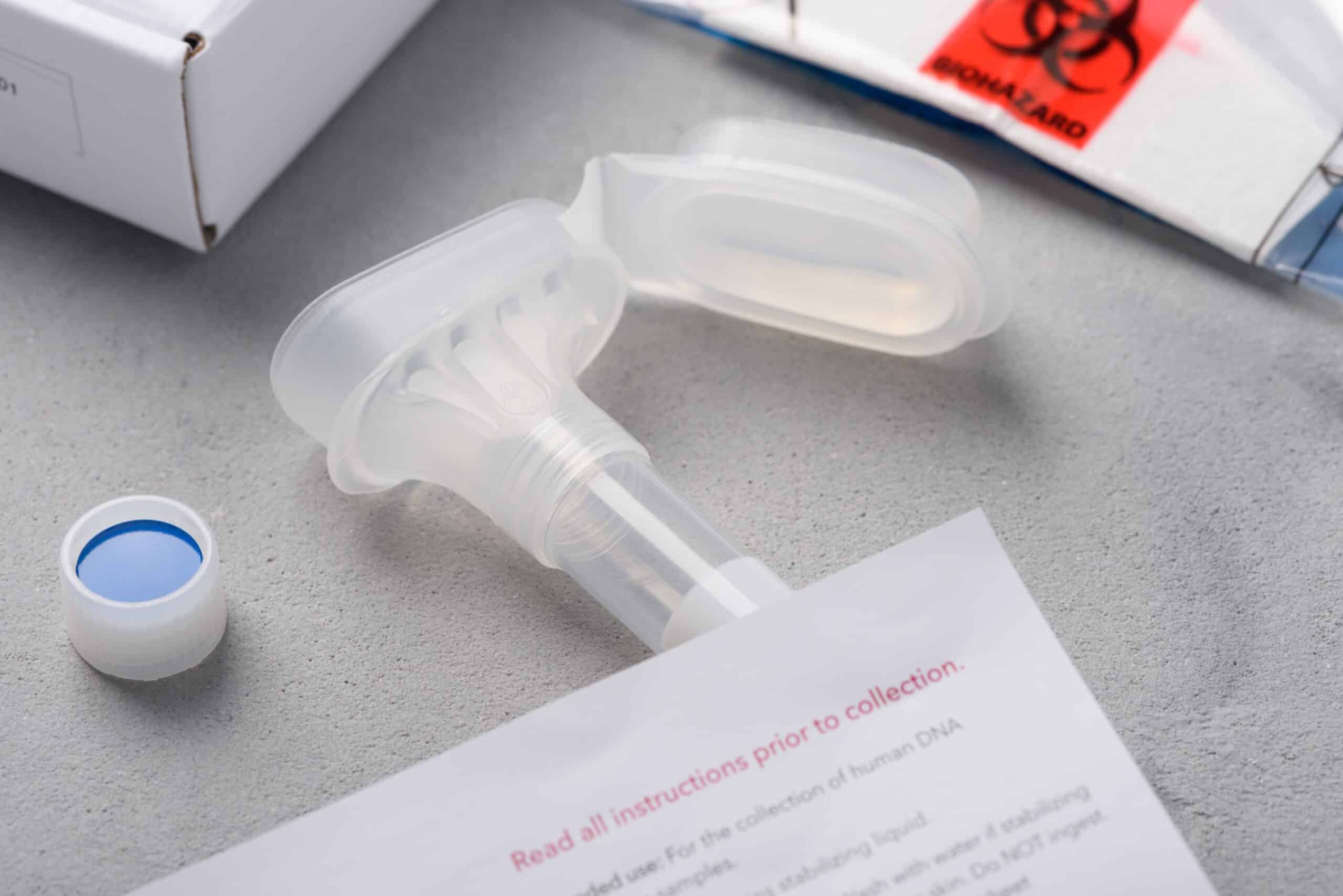Now The Royal College of General Practitioners has released guidance which places a significant amount of doubt on these consumer genetic testing kits as their guidance on direct to consumer genetic testing published in a joint statement with the British Society for Genetic Medicine has stated that:
“… health professionals should exercise caution when asked to offer, or provide, clinical expertise about the results of Direct to Consumer (DTC) genomic or genetic testing. The analytical validity, sensitivity and clinical utility of such testing may be much lower than is popularly perceived. For certain types of DTC results, there is a very high chance of false positive or false negative results.”
Direct to consumer genetic testing kits promise to reveal the secrets behind a person’s DNA from a biological sample such as saliva which the consumer takes at home themselves and sends to the company for analysis. Some companies even claim to be able to provide some insight into one’s risk of particular disease, while others go the extra step to claim their tests can provide information on personality and talent.
Some genetic tests may be a potential preventive measure against heart disease and may be a way to obtain information without needing to visit several medical professionals, but being able to understand and extrapolate the genetic data and meaning is a complex process which may cause consumers to redirect results to their physicians to be deciphered. Additionally most of these direct to consumer genetic testing kits don’t sequence the entire genome, they only look for specific variants or lack thereof in the genetic coding. These results often show false positives, presenting elements that are not present in the DNA. As such the guidance goes on to say:
“Gene variants giving information regarding single gene conditions or predispositions: examples may be variants in breast cancer related genes (BRCA1 or BRCA2), or the Cystic Fibrosis gene (CFTR). Results may be:
- False negatives: The genes may have many different types of variation within them, yet often DTC testing only looks for a small proportion. Thus testing will miss a large proportion of these, for example in the region of 80% of known BRCA1/2 mutations are missed by commercial companies who generally only analyse three of the many different possible mutations.
- False positives: DTC tests that use a “SNP chip ” [single nucleotide polymorphism] technique [used by the majority of companies in operation in 2019] are very likely to categorise rare variants wrongly2. Thus 85-95% of BRCA1/2 variants or Bowel cancer gene variants for example, will be false positives or artefacts. The impact of false positives will likely place increasing demand on the health service which will need to spend considerable time and money counselling patients and reanalysing their samples.”
To go along with the questions regarding the quality control of direct to consumer genetic testing there is also the very serious questions as to how safe the consumer’s data is. As this information is being collected it is important to know what happens to all the data after the results have been provided. Case in point in 2018 a Fast Company report indicated that Ancestry and 23AndMe were under investigation from the Federal Trade Commission over policies regarding data security and personal information sharing.




